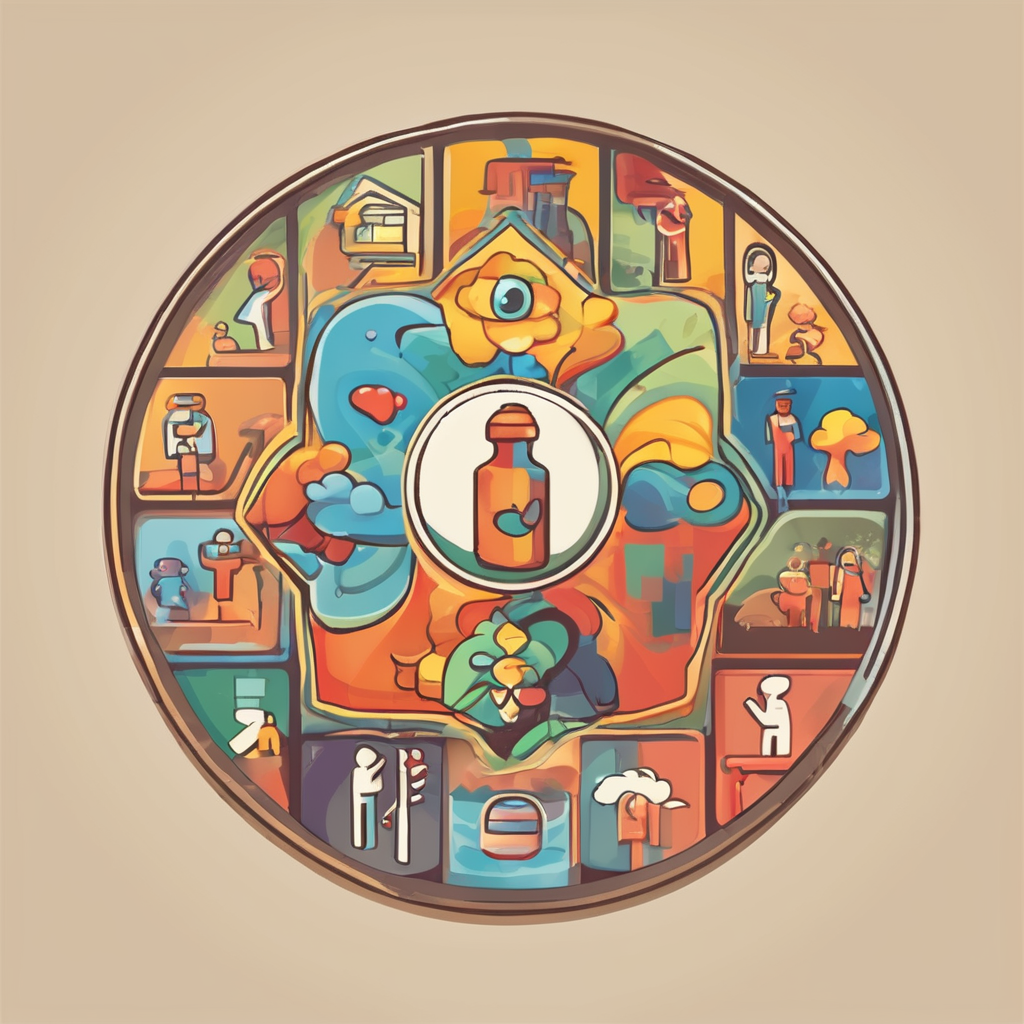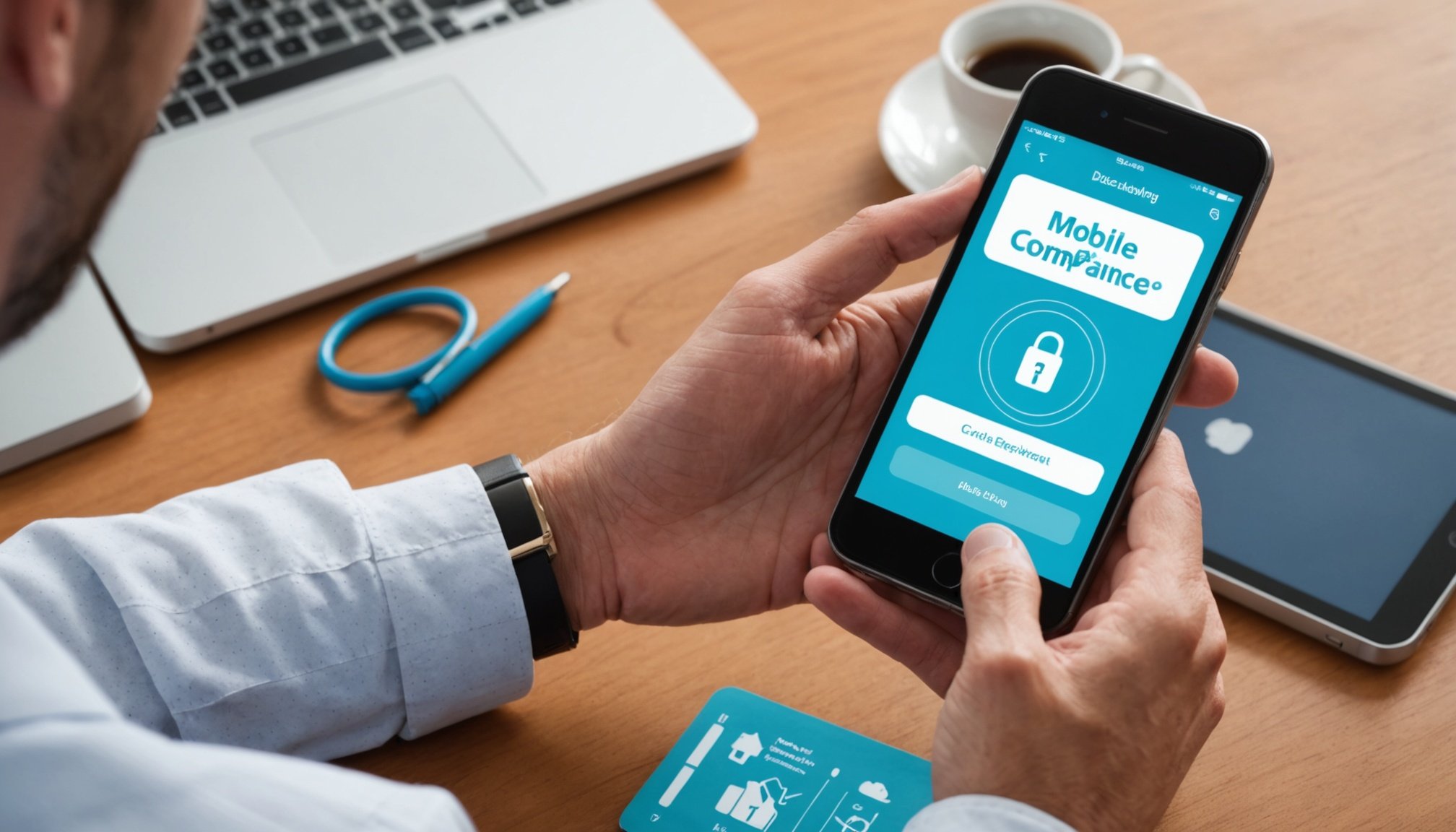Unlocking Better Health: The Role of Mobile Apps in Boosting Patient Adherence to Chronic Medication
In the modern era of healthcare, technology has become an indispensable tool for managing chronic conditions and improving patient outcomes. One of the most significant advancements in this field is the rise of mobile health apps, which are revolutionizing the way patients adhere to their medication regimens. In this article, we will delve into the world of mobile health apps, exploring how they enhance medication adherence, the technologies behind them, and the impact they have on patient care.
The Challenge of Medication Adherence
Medication adherence is a critical aspect of managing chronic conditions, yet it remains a significant challenge for many patients. Non-adherence to medication can lead to poor health outcomes, increased hospitalizations, and higher healthcare costs. According to various studies, approximately 50% of patients with chronic diseases do not take their medications as prescribed, highlighting the need for innovative solutions to address this issue[5].
Also to read : Exploring the Impact of Consistent Thermal Therapy on Heart Health in Middle-Aged Men
How Mobile Apps Improve Medication Adherence
Mobile health apps have emerged as a powerful tool in improving medication adherence. Here are some key ways these apps make a difference:
Medication Reminders and Schedules
Mobile health apps can send reminders to patients to take their medications at the right time, reducing the likelihood of missed doses. For example, the Wellth app, used by Medicaid patients, has been shown to significantly boost medication adherence and lower unnecessary healthcare costs[4].
Also to discover : Do Probiotics Help Combat Antibiotic-Related Diarrhea in Seniors? Exploring the Benefits for Elderly Patients
Symptom Tracking and Monitoring
These apps allow patients to track their symptoms and vital signs, providing valuable data that can be shared with healthcare providers. This continuous monitoring enables timely interventions and adjustments to treatment plans, ensuring that patients receive the most effective care[3].
Personal Health Records (PHRs)
Mobile health apps often integrate with Personal Health Records (PHRs), which collate a patient’s medical history, test results, and treatment plans. This centralized access to health information ensures that patients and healthcare providers have the most accurate and up-to-date data, leading to better health outcomes[3].
Core Features of Mobile Health Apps
Here are some of the core features that make mobile health apps effective in boosting medication adherence:
- Medication Reminders: Automated reminders to take medications at the prescribed times.
- Symptom Tracking: Tools to monitor and record symptoms, which can be shared with healthcare providers.
- Personal Health Records: Integration with PHRs to keep all medical information in one place.
- Remote Health Monitoring: Continuous tracking of vital signs and symptoms using wearable devices and mobile apps.
- Secure Messaging: Direct communication with healthcare providers through secure messaging platforms.
- Educational Content: Access to educational materials and resources to help patients understand their conditions and treatments better.
The Technology Behind Mobile Health Apps
The success of mobile health apps is underpinned by several advanced technologies:
Artificial Intelligence (AI)
AI algorithms can analyze patient data to predict adherence patterns and send personalized reminders. For instance, AI can identify times when a patient is most likely to forget their medication and send targeted reminders[5].
Wearable Devices
Wearable devices such as smartwatches and fitness trackers can monitor vital signs in real-time, providing continuous data that can be synced with mobile health apps. This real-time monitoring enables proactive healthcare interventions and enhances patient engagement[3].
Telehealth and Telemedicine
Telehealth and telemedicine features within mobile health apps allow patients to have virtual consultations with healthcare providers, reducing the need for in-person visits and improving accessibility to care[5].
Impact on Patient Care and Engagement
The impact of mobile health apps on patient care and engagement is multifaceted:
Enhanced Patient Engagement
Mobile health apps place patients at the center of their care journey, empowering them to take an active role in managing their health. By providing tools for self-management and continuous monitoring, these apps foster greater patient engagement and adherence to treatment plans[3].
Improved Health Outcomes
Studies have shown that patients using mobile health apps have better health outcomes compared to those who do not. For example, a study on the Wellth app found that it helped Medicaid patients with chronic conditions stick to their medications more consistently, leading to reduced healthcare costs and improved health outcomes[4].
Streamlined Care Processes
Mobile health apps streamline care processes by enabling secure communication between patients and healthcare providers, reducing the need for paperwork, and automating routine tasks such as medication reminders. This efficiency improves the overall quality of care and reduces administrative burdens on healthcare providers[5].
Practical Insights and Actionable Advice
For patients and healthcare providers looking to leverage mobile health apps, here are some practical insights and actionable advice:
- Choose the Right App: Select an app that is user-friendly and meets your specific health needs. Look for apps that have been reviewed and recommended by healthcare professionals.
- Set Up Reminders: Use the app to set up medication reminders and schedules to ensure you never miss a dose.
- Track Your Symptoms: Regularly track your symptoms and vital signs to provide valuable data to your healthcare providers.
- Communicate with Your Provider: Use the secure messaging feature to communicate with your healthcare provider, ensuring that you receive timely advice and interventions.
- Stay Educated: Utilize the educational content within the app to better understand your condition and treatment plan.
Table: Comparing Key Features of Popular Mobile Health Apps
| App Name | Medication Reminders | Symptom Tracking | PHR Integration | Remote Monitoring | Telehealth Features |
|---|---|---|---|---|---|
| Wellth | Yes | Yes | Yes | Yes | Yes |
| REAN HealthGuru | Yes | Yes | Yes | Yes | Yes |
| MyMedSchedule | Yes | No | No | No | No |
| Medisafe | Yes | Yes | Yes | No | No |
Quotes from Experts and Users
- “Mobile health apps have been a game-changer for our patients. They enable us to monitor their health in real-time and make timely interventions, which has significantly improved their adherence to medication and overall health outcomes.” – Dr. Jane Smith, Healthcare Provider
- “Using a mobile health app has made managing my chronic condition much easier. I get reminders for my medications, and I can track my symptoms and share the data with my doctor. It’s like having a personal health assistant in my pocket.” – John Doe, Patient
Mobile health apps are revolutionizing the way patients manage their chronic conditions by enhancing medication adherence, improving health outcomes, and streamlining care processes. With their advanced features, integration with wearable devices, and telehealth capabilities, these apps are empowering patients to take a more active role in their health management. As the healthcare landscape continues to evolve, the role of mobile health apps will only become more pivotal in ensuring better health outcomes for patients worldwide.
In conclusion, the impact of mobile health apps on medication adherence and patient care is profound. By leveraging these technologies, patients and healthcare providers can work together more effectively to manage chronic conditions, leading to better health outcomes and a more patient-centric care experience. Whether you are a patient looking to manage your health more effectively or a healthcare provider seeking to enhance patient care, mobile health apps are an invaluable tool in the journey towards better health.











